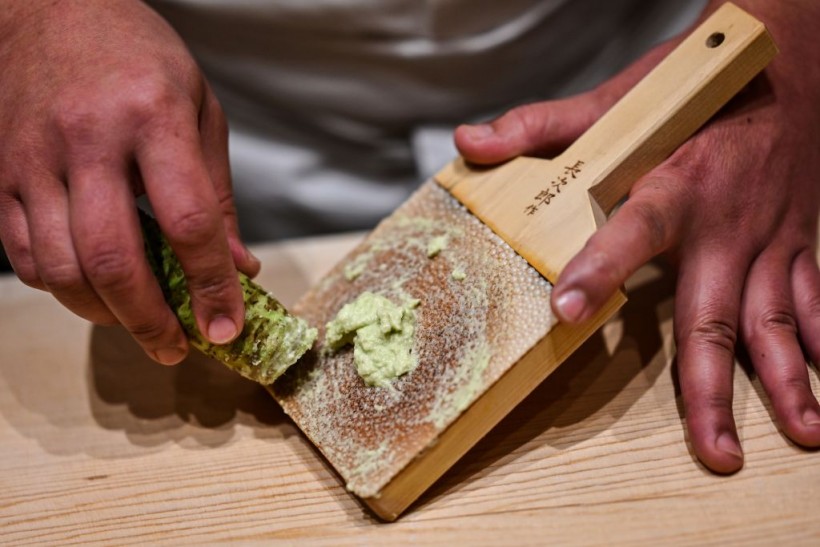We can now say that sushi is more than just a nutritious combination of fish and seaweed. Wasabi, the fiery green spice often used to season raw fish, enhances memory in both the short and long term, according to research out of Tohoku University.
Rui Nouchi, an associate professor at the school's Institute of Development, Aging and Cancer (IDAC) and the study's principal researcher, said the findings were more impressive than expected, even though they were based on a small sample of healthy individuals.
"We knew from earlier animal studies that wasabi conferred health benefits. But what really surprised us was the dramatic change. The improvement was really substantial," he said during an interview with CBS News from his office in northeast Japan.

In this picture taken on December 1, 2020, Japanese sushi master Toshiya Matsushita shreds fresh wasabi at his restaurant in Tokyo. - If you've eaten sushi, you might assume you've tried wasabi. But chances are it was an artificial version that Japanese growers say is a world away from their 'green gold'.
Promising Results
Japanese wasabi has a biochemical called 6-MSITC, which is known to have antioxidant and anti-inflammatory properties. Nouchi said that this compound is present in very small concentrations in other plants. A total of 72 healthy adults, ranging in age from 60 to 80, participated in the crossover, randomized trial. Each participant was given 100mg of wasabi extract before bed, whereas the other half received a placebo.
Following three months of treatment, the treated group showed "significant" improvements in working memory (short-term) and episodic memory (long-term), as measured by standardized tests of language proficiency, attention span, and task complexity. Executive function, processing speed, and inhibitory control (the capacity to maintain attention) did not show any improvement, though.
Nouchi said that the average episodic memory score of those treated with wasabi was 18% higher than that of the placebo group and that the total score was 14% higher.
Scientists suggested that 6-MSITC might increase neural plasticity by decreasing inflammation and oxidant levels in the hippocampus, a brain region critical for memory function. Results indicated that wasabi-dosed participants "showed improved verbal episodic memory performance as well as better performance in associating faces and names, which is often the major memory-related problem in older adults," compared to the control group.
The researchers from Tohoku University want to see whether wasabi may help individuals with dementia prevent the progression of cognitive deterioration by testing it on people of different ages.
See Also: Traumatic Injury Patients Make Remarkable Recovery Thanks to Brain Implants
Watch Out for Fakes
Unfortunately, the strong-flavored paste that is provided at practically all sushi establishments, even in Japan, is probably not authentic. The fake version, often made with regular white horseradish that has been colored green, is much more prevalent than the genuine product.
Wasabi, a plant native to Japan, is infamously hard to grow. The plant needs precise conditions of water, shade, gravel, and temperature to mature, which takes over two years. It might be more expensive per pound than the premium tuna it is served with.
See Also: CDC Reveals 1 in 3 Americans Now More Vulnerable to Type 2 Diabetes








